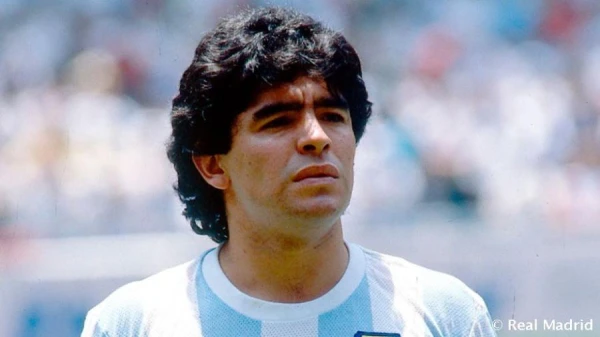
On October 30, former captain and head coach of the Argentina national team Diego Maradona would have turned 65 years old.
In 2010, renowned sports journalist Igor Rabiner had the fortune of interviewing co-author of the great Argentine's autobiography, Daniel Arcucci Armando, ten years before Maradona's death.
Here are some excerpts.
“You missed the turtle”
— Why did Maradona choose you as a co-author?
— We have known each other for a quarter of a century. And when Maradona was offered to write an autobiography, he decided that he needed the help of a journalist who was well acquainted with his way of thinking and had spoken with him more than once. And I know what Maradona thinks on various issues. So he entrusted me with the opportunity to put those thoughts on paper in his name.
We worked in Havana, as Diego was living in Cuba at that time and dealing with well-known health issues. Maradona had a lot of ideas, and my role was to structure and combine them. With someone else, Diego would probably have had to work much harder.
From the very beginning, I set myself the task: the reader, opening the book, should not just read but actually hear Diego. His voice, intonations. How and what he says. Because he has his own vocabulary, a personal language. A number of phrases, I fear, are simply untranslatable; they can only be understood by those who know Maradona.
— Can you give an example?
— Literally, one of his favorite expressions sounds like this: “You missed the turtle.” And in meaning: “You missed your chance.” That is, you had a good chance, say, to win my favor, but you didn’t take it — and now, buddy, sorry, we’re not on the same path. When some journalist writes nonsense about Maradona — Diego, upon meeting him, throws out that phrase...
We met in various places around the world. We have a special relationship, which I cannot, however, call friendship. It is rather mutual respect, both professional and personal. I know when and what of what Maradona tells me can be published. Years of experience clearly tell me whether a particular remark in our conversations is private or meant for the public.
— How long did you work on the book?
— Six months. Although in my blog “Let’s Talk About Maradona,” I wrote that I had been working on it for over 20 years. After all, this book contains all the experience of my relationship with Maradona.
Do you know how I first communicated with him? It was on Christmas in 1985. I was a very young 21-year-old reporter at El Grafico magazine. My editor said: “I need material on how Maradona and his family celebrate Christmas. You have to spend the holiday with him in his home and then write about it. And you can only do this because serious, well-known journalists wouldn’t take on such an assignment.” Because, they said, it’s hard, even impossible, to negotiate with Diego and it’s generally difficult to deal with him.
I waited for Maradona at Buenos Aires airport all day. He was supposed to arrive from Naples right before Christmas. And I didn’t wait for him! I called on the phone, explained the situation to his girlfriend Claudia, who later became his wife. I said that I was a very young journalist from a small town — and came to the capital just for this publication. Claudia said: “Just a moment” — and handed the phone to Diego.
He said: “No, kid, that’s impossible! Why should I spend my holiday on you?!” I was already despairing — but then Maradona added: “Tomorrow is another matter. Come to my house — and I will talk to you for as long as you want.” I went to El Grafico and conveyed Maradona’s response. The editor protested: “No, I need Christmas Eve!” But then I stood my ground: “Maradona said — tomorrow, so I will go to him tomorrow.”
On December 25, I arrived at his place at 11 AM and left at midnight. I think it was important for Maradona that I showed respect for his private life and personal time, not insisting on the original assignment from the editorial office. This has become and still is the key to our relationship.
— After ending his playing career, Maradona went into a downward spiral. Were you worried not just about his health but for his life?
- Oh yes. Maradona is Maradona not only because of what he did on the football field but also because of all those stories, troubles, problems — drugs and so on. Maradona was practically dead three times! Three times!
Shooting at Reporters
— How did it happen that one day Diego started shooting at reporters with a shotgun?
— At that time, Maradona was going through a very difficult period. In that situation, of course, he was wrong — but the journalists were wrong too. They practically surrounded his house, not giving him and his family a way to pass. And he couldn’t take it anymore.
— Did Fidel Castro really help him recover from drug addiction?
— Yes. By the way, I helped Maradona write two letters to Fidel. And then, in Cuba, I saw them together. Diego’s admiration for Castro is immense. Perhaps he is the only person Maradona ever said: “I really want to see him.” Many famous people wanted to meet Maradona himself, but there was no other person he would pray for.
— Are you surprised by things like, for example, the conflict he once had with Pope John Paul II?
— Maradona can argue with anyone if he doesn’t like something.
Never Will Be Gray
— What do you think is more important for Maradona — football or family?
— (Laughs.) I think family. But here — it’s a single chain. To work normally in football, he needs everything to be good with his family. And he needs football to live.
— If there were no football, would he already not be alive?
— Yes. He cannot live without football. Honestly, I thought it wasn’t very good for Maradona to become the head coach of the national team. Because it’s a huge risk for his image. But then I realized that for Maradona, football is life; he needs the game like a fish needs water.
— When was the last time you saw Diego crying?
— In Argentina. When he receives messages from his daughters, his eyes always fill with tears. He is a very sentimental and emotional person. His daughters wrote to him: “Dad, you are the best! For us, you are the number one coach!” Giannina, of course, lives in Madrid with Kun Aguero. And Dalma — in Argentina.
— One of his favorite expressions, which Diego used in Emir Kusturica's film about him: “I can be white or black, but I will never be gray.”
— Yes, he often says that. And this expression explains all of Maradona’s life. And the film is very good; in it, Maradona is as he is.
— At the 2010 World Cup, he unexpectedly started wearing a gray suit with a tie, which doesn’t quite match Maradona’s flamboyant image.
— It was his daughters’ idea. They said: “Dad, we like it when you wear a tie.” Maradona initially waved it off: “No, no!” And suddenly, for the first game, he came out in a suit with a tie. It was a complete surprise not only for Dalma and Giannina but also for the team! While the players were warming up, Maradona used a couple of free minutes in the empty locker room to change. Everyone was amazed, and he did it for his daughters.
— How do you envision Maradona's future?
- It is impossible to talk about Maradona's future. How can one speculate about what will happen to him in a year when it is unknown what will happen to him in ten minutes?...


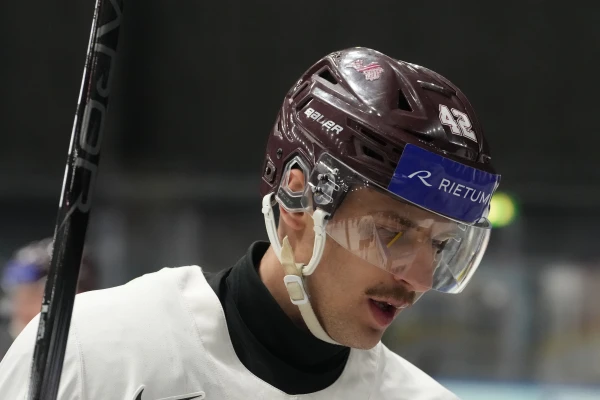
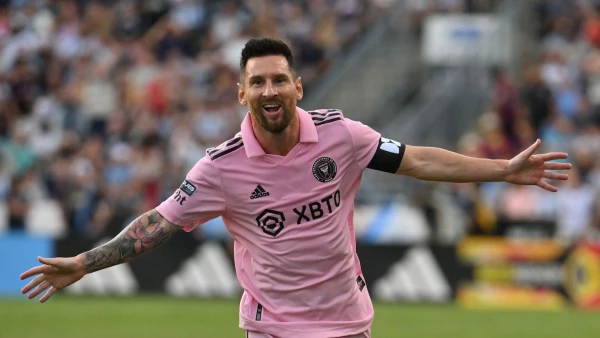



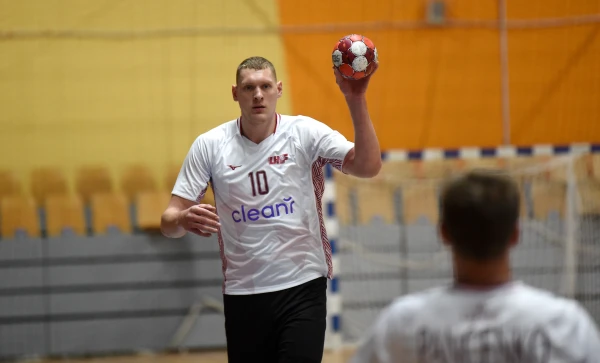


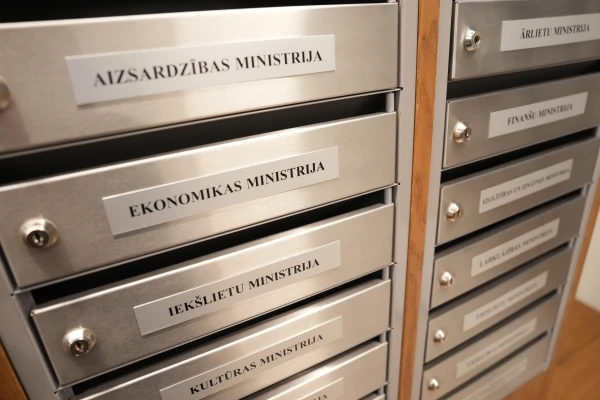
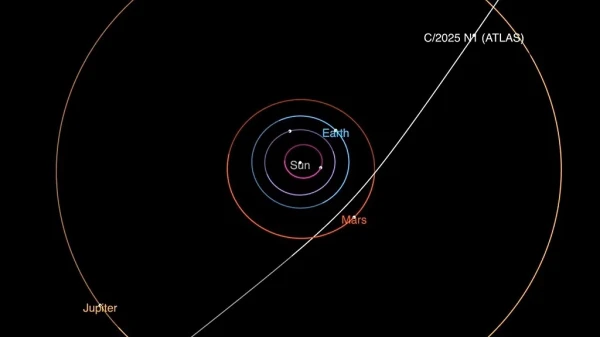



Leave a comment